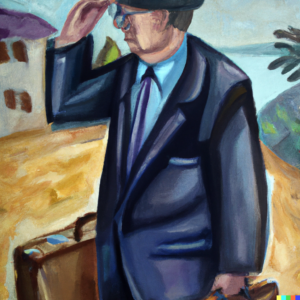
Pensioner
Joe is a US citizen who wants to retire in Slovakia to get to know the country of his ancestors and enjoy the increased value of his pension due to lower costs of living. Citizenship gives him the ability to stay and explore Slovakia for longer than 90 days, freely move within the European Union, and access Slovak and European healthcare systems and property markets. At the same time, it cuts Joe’s US state taxes without creating new tax obligations in Slovakia.
Freelancer
Elisabeth runs a consultancy firm from Israel and wants to spend some time of the year in Slovakia and other parts of Europe. Having a European base would also help her to grow her business and learn about new markets. She decides to set up a branch in Slovakia, the country of her ancestors, and seek citizenship by descent in the meantime. Once she obtains citizenship, she has the ability to expand her business and offer her services within the European single market.
Scientist
Anna is an Australian scientist who would like to do a joint project with Slovak and other European universities. Since the project requires her physical presence in Slovakia, she decides to use the time to explore the country of her ancestors and seek citizenship by descent in the meantime. By the end of her two-year stay, she has become a Slovak (and European) citizen who now has many more options for her future employment.
Student

Peter just finished high school in Serbia and would like to study in Slovakia, the country of his ancestors. During his studies, he applies for citizenship by descent. Slovak citizenship gives him the possibility to freely continue his studies anywhere in the entire European Union at much lower costs. Since he also speaks Slovak and German, he can now continue his study for free in these countries. The newly acquired citizenship also boosts his chances to stay in Slovakia or other parts of Europe after he completes his studies.